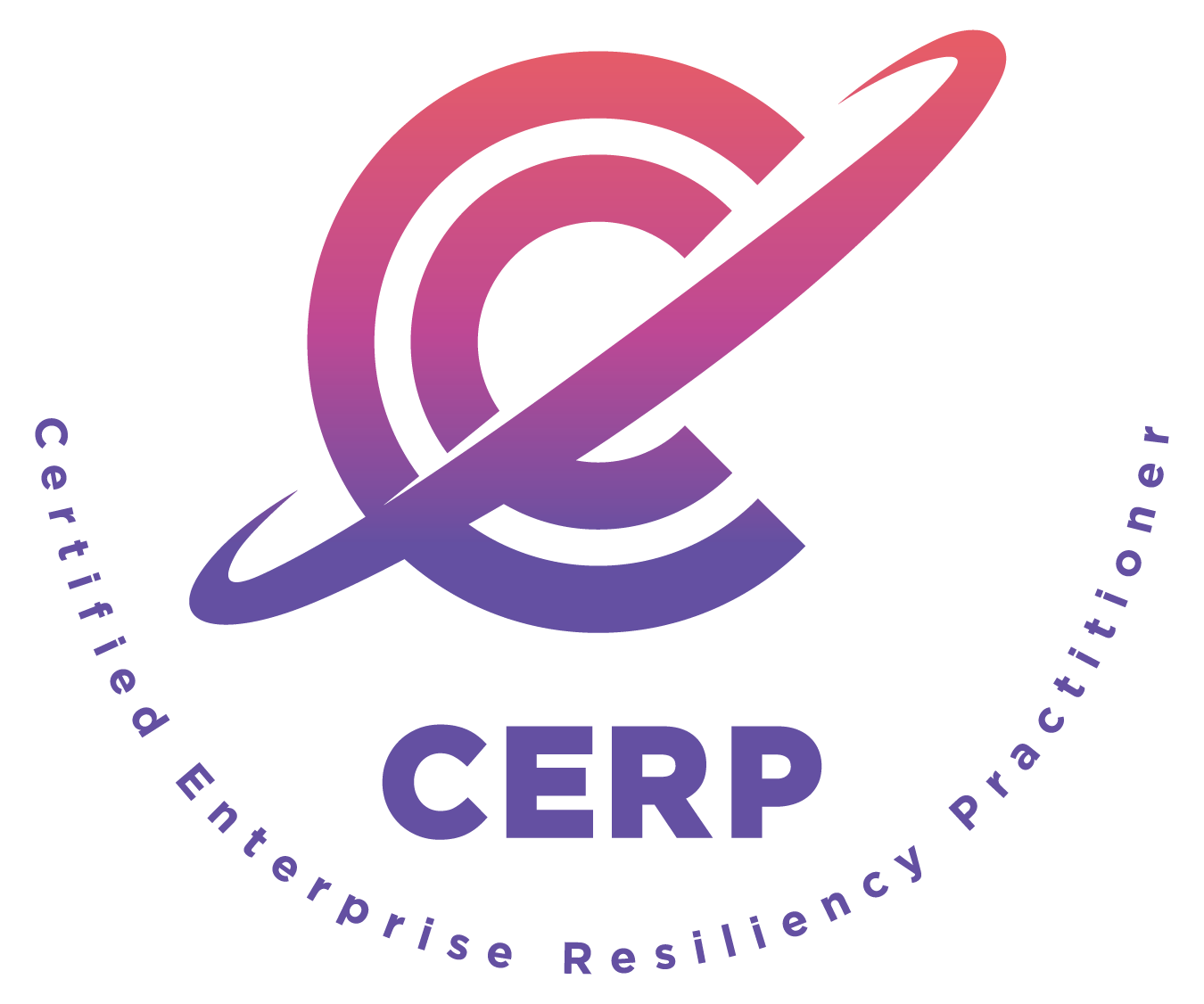
Overview
ISS has updated and resurrected their CERP certification training. This 16 hour course is delivered in a variety of ways, including a 2-day in-person course and a virtual offering. All classes qualify for 16 CPEs. Regardless of delivery method, this class is designed to provide participants with the knowledge and skills required to develop and implement enterprise-wide resiliency programs based on the principles of BS 65000 and ISO 22301 as well as other supporting industry standards. The course covers the essential aspects of resiliency planning and management, including risk assessment, measuring business impact, and building a response and recovery strategy.
The program is delivered in an interactive and engaging format that combines instructor-led training, case studies, group discussions, and practical exercises. Currently, the class is being delivered as both an onsite, in-person training class, as well as a virtual training class. The course also includes a comprehensive workbook that will assess participants’ knowledge and skills of the subject matter. Successful completion of the workbook leads to certification as a Certified Enterprise Resiliency Practitioner.
Who is this course for?
The CERP course is suitable for professionals involved in developing and implementing resiliency programs in organizations of all sizes and types. The principles of this course can be applied to building resiliency in plans, programs, departments, processes and organizations.
Learning Objectives:
Upon completing the course, participants will be able to:
-
- Understand the fundamental principles and concepts of enterprise resiliency management.
- Conduct a comprehensive risk assessment to identify potential threats and vulnerabilities to an organization’s operations.
- Develop and implement a business impact analysis to identify critical business functions and their dependencies.
- Develop and implement a response strategy to manage and respond to disruptive events.
- Discussions of best practice planning for critical business functions and operations.
- Establish a resiliency program framework and governance structure to ensure continuous improvement and effectiveness.
- Understand the importance of effective communication, training, and awareness in resiliency management.
- Understand the role of standards such as BS 65000 and ISO 22301 in resiliency management and certification.
All attendees will be provided access to BS 65000, ISO22301, ISO 27001, ISO27002 & ISO 31000 standards during the class and for 1 year after the class.
The CERP course equips participants with the knowledge and skills required to develop and implement enterprise-wide resiliency programs, ensuring organizations can effectively respond to disruptive events and quickly recover critical business functions.
Class Prerequisites:
To get the most out of this training class, we recommend you come to this class prepared with the following information:
- Your Organization’s/Division’s/Department’s/ goals, objectives, strategic objectives (based on your scope of resiliency)
- A list of your primary and secondary stakeholders
- An understanding of your role (Job Description) within your organization
CERP Certification
Our certification process is unique. Throughout the training class you will be asked to complete exercises in our Sample Workbook. Upon the completion of the class, you will be asked to complete a CERP Workbook specific to your current work/employment situation. After your workbook is reviewed by the instructor, he/she will issue your certification along with any feedback that may help you begin implementing your plan for resiliency.
<><><><><><><><><><><><><><><><><><><>
<><><><><><><><><><><><><><><><><><><>
Note for people who want to be a CERP Trainer: Attending a CERP training class and completing the class workbook is one of the prerequisites to becoming an approved trainer. If you want to be a CERP Trainer, attending this class will meet your training class requirement. If you have any questions, contact cso@informationsecuritysummit.org.
